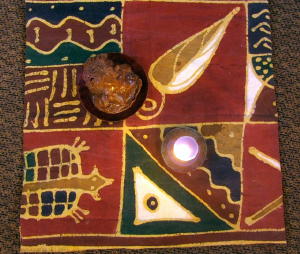“Chickens coming home to roost” is what a voice says about some  catastrophe. It’s the aphorism -of which my grandmother was quite fond-that catches my attention. She always used it to describe the legacy of slavery: the way in which children are born full of light and joy, but later, when they’re old enough to work the fields, return at the end of day with cruelty lurking behind their eyes. …
catastrophe. It’s the aphorism -of which my grandmother was quite fond-that catches my attention. She always used it to describe the legacy of slavery: the way in which children are born full of light and joy, but later, when they’re old enough to work the fields, return at the end of day with cruelty lurking behind their eyes. …
The chickens come home to roost. I remain curious about the explosive histories that sent these chickens flying into distant disorder, but which we consign to oblivion as they glide back to earth, drifting like embers and ashes, the regrouping phoenixes of reiterated traumas. I turn off the radio, left with an ominous vision of flocks of mean-spirited birds, broken-winged and brooding, gathering in unnatural silence as though before a storm.
Patricia J.Williams,
“Summer of Hate”, The Nation, September 2014
The principle of treating others the same way one would like to be treated is echoed in at least twelve religions of the world. ”Others” transcend gender, race, class, sexual orientation or caste. Whoever and whatever the “other” is, she has to be treated with dignity, kindness, love, and respect. In African communitarian spirituality, this is well expressed in the Ubuntu religious and ethical ideal of “I am because you are, and since we are, therefore I am” – a mandate based on the reality of our being interconnected and interdependent as creation. Therefore pain caused to one is pain shared by all.
Fulata Moyo,
Women in Church and Society, World Council of Churches
